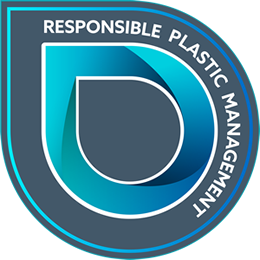EU Ban on shipping unsorted Plastic Waste
Over the last Decade, there has been an increasing and often uncontrolled trade in Plastic Waste damaging both the Environment and Public Health.
Last year, the EU exported 1.5 Million Tonnes of Plastic Waste, to Asian Countries such as Malaysia and Indonesia. This has created serious problems for these ‘exploited’ Nations that do not have the Waste Management and Recycling Infrastructure to handle it. Plastic Waste has ended up in Landfills, burnt in open air or dumped in the Ocean creating both an environmental and a human health crisis.
However, as of January 2021, new rules will come into force set to ban the export of unsorted Plastic Waste to these less industrialised Nations. The changes stem from a landmark decision that amends the Basel Convention that identifies Plastic as hazardous Waste.
The amendments do not mean a ban on exports to the listed Countries but until permissions are secured, exports will halt. On average, 17,500 Tonnes of Waste Plastics are exported from England alone each month to non-OECD Countries.
Under the new rules, only clean, non-hazardous Waste exports can be sent to non-OECD Countries for recycling under stricter conditions and hazardous Plastic Waste deemed “hard to recycle” would require prior authorization from both the Recipient and dispatching Nation.
Some of the new rules include:
- A ban on exporting hazardous Plastic Waste and Plastic Waste that is hard to recycle from the EU to non-OECD Countries.
- Exporting clean, non-hazardous waste (which is destined for recycling) from the EU to non-OECD countries will only be authorised under specific conditions.
- Exporting hazardous Plastic Waste and Plastic Waste that is hard to recycle from the EU to OECD Countries will be subject to the “prior notification and consent procedure”. Under this procedure, both the importing and exporting Country must authorise the shipment.
- Importing hazardous Plastic Waste and Plastic Waste that is hard to recycle into the EU from third Countries will also be subject to the “prior notification and consent procedure”.
- The “prior notification and consent procedure” will also apply to intra-EU shipments of hazardous Plastic Waste, and of non-hazardous Plastic Waste that is difficult to recycle.
The ban aims to stop the exploitation of poorer Countries and alleviate the enormous leakage of Waste Plastic to the Oceans. Without action, the annual flow of Plastic into the Ocean will nearly triple by 2040, to 29 Million Metric Tonnes per Year.
RPM Program welcomes the new requirements but notes that they should not prevent greater efforts to reduce our reliance on Single Use Plastic in the first place. We need continued efforts in reuse Systems and in design for recycling. Regardless of where Plastic Waste is shipped, it must be fit for recycling, which means free from chemical additives, uncontaminated and there must be adequate infrastructure for recycling and importantly, we need greater effort to develop the market for recycled Plastic. In short, the new rules will likely have little impact on the production of Virgin Plastic.
RPM Program aims to play its part in supporting Businesses and implementing a ‘Plastic Management Systems’ is the first step that all Organisations can take in the reduction of Plastic Waste. RPM provides a standardised approach, support and recognition for this.
Please Contact Us for more information and to gain further insight on how to become a responsible Plastic Business.
